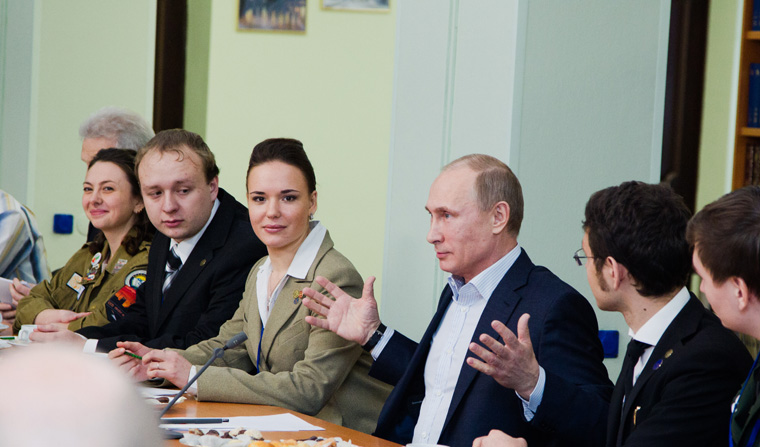Twenty eight large nuclear power units will be built in Russia before 2030, President of Russia Vladimir Putin stated at a meeting with NRNU MEPHI students. “In Russia’s energy mix, a share of nuclear power is not big, just 16%. Our goal is to reach 25%. This speaks of the fact that by 2030 we must build 28 more large power units; this is nearly the same as the number of units made and commissioned over the entire Soviet period,” Putin said. The President added that in addition to this number Rosatom had got orders for building 22 nuclear power units abroad. Putin expressed his opinion that the further development of nuclear power in the world is inevitable, in spite of the fact that after the Fukushima-Daiichi accident two countries – Germany and Japan – abandoned development of this area. “All other world countries consider necessary to develop nuclear power, and I think this is inevitable,” the President said. “It is impossible to reverse the progress. There is another issue that is how to ensure safety,” he added.
Nikolay Spasskyi, Rosatom’s Deputy General Director for International Affairs, had a consultation with General Director of OECD/NEA L. Echavarri in Paris headquarters of Nuclear Energy Agency of Organization for European Economic Cooperation and Development. They summed up results of the first year of the full-scale membership of Russia in NEA. Both parties stated satisfaction with the work done. N.N. Spasskiy and L. Echavarri discussed in detail the current agenda of interaction of Rosatom and the Agency. The main attention was paid to practical matters of ensuring the effective and substantial participation of Russian organizations and institutes in the Agency’s activities. At that, it was noted that the projects selected for the cooperation should meet Russia’s interests and priorities. An agreement to continue regular consultations in future was reached.
At the Leningrad NPP-2, currently under construction, they started analytical stimulator software testing for VVER-1200 power unit, supplied by General Energy Technologies (GET) at the end of 2013. The device is planned to start operating as early as this year. Thus operating staff of the plant will be able to do full-scale practicing of safe start-up operations, study the plant’s equipment and its work, physical and technological processes of the unit, learn to operate technological system at different operation modes. An analytical stimulator is a complex device meant for unit control room personnel training and proficiency maintaining, using complex all-mode mathematical model of power unit working in real time mode.
Russia is looking forward to step by step realization of joint projects with the Czech Republic in nuclear energy sphere, said President Vladimir Putin at delivery presentation of credentials ceremony by foreign ambassadors, including Vladimir Remek, the new Czech ambassador. Russia took part in a tender for completion of the Temelin NPP in the Czech Republic. The tender for construction of units 3 and 4 costing $10 billion was announced by CEZ company August 3, 2009. The results of the tender and contract signing were expected by the end of 2013, while the construction of new units was supposed to start in 2017, but in October Skoda’s General Director Miroslav Fiala told journalists that the results were postponed by 1,5-2 years.
Putting into operation of the first Vietnamese NPP Ninh Thuan-1, being constructed with the participation of Rosatom may take place in 2023-2024 (first it was planned for 2020), as said the country’s Prime Minister Nguyen Tan Dung at the meeting dedicated to the results of work of PetroVietnam (the country’s oil and energy company). He said, that putting into operation of 4000 MW installed capacity may need to be postponed in order to have more time for training highly qualified Vietnamese specialists who are to work at the plant.





